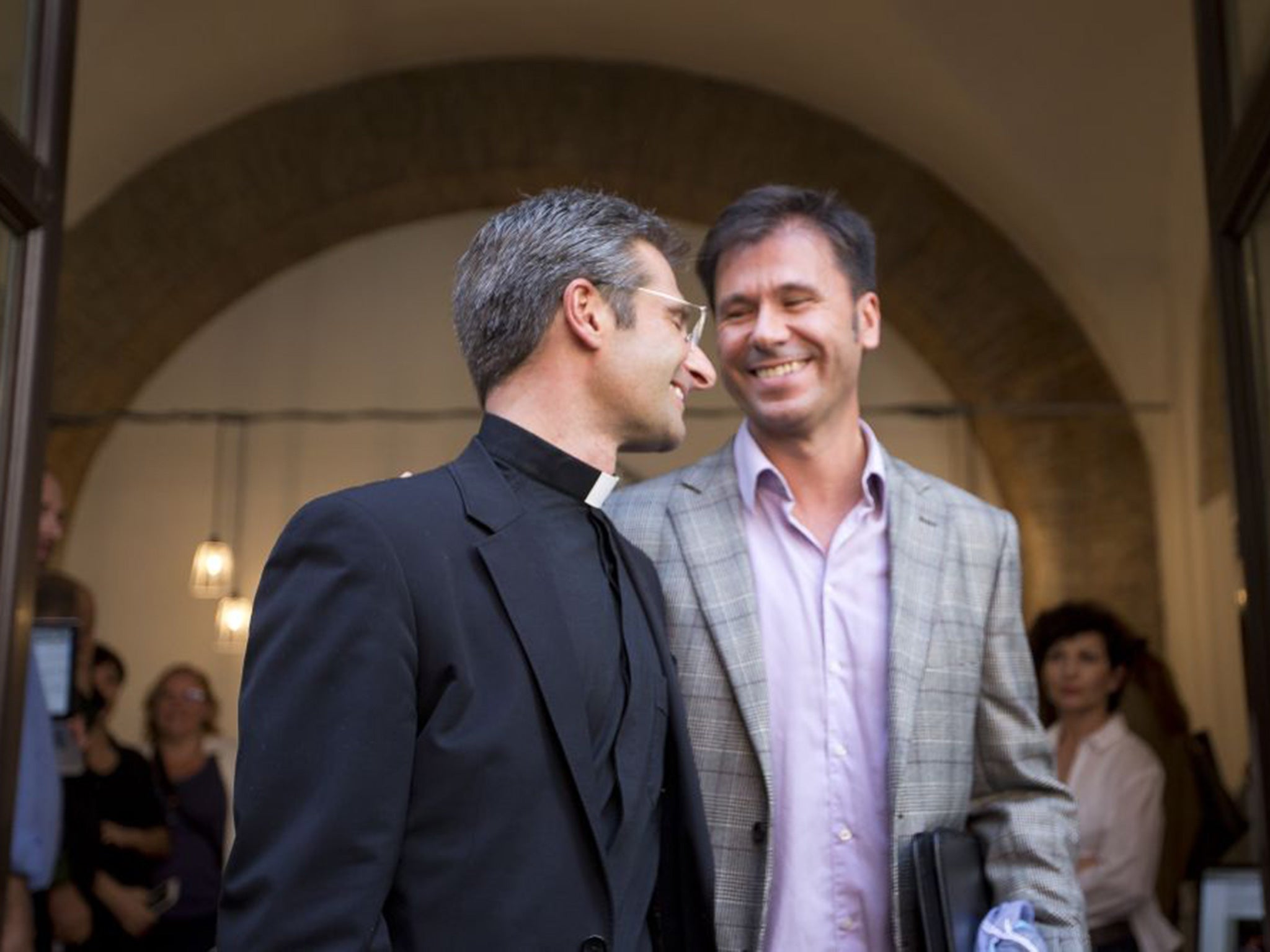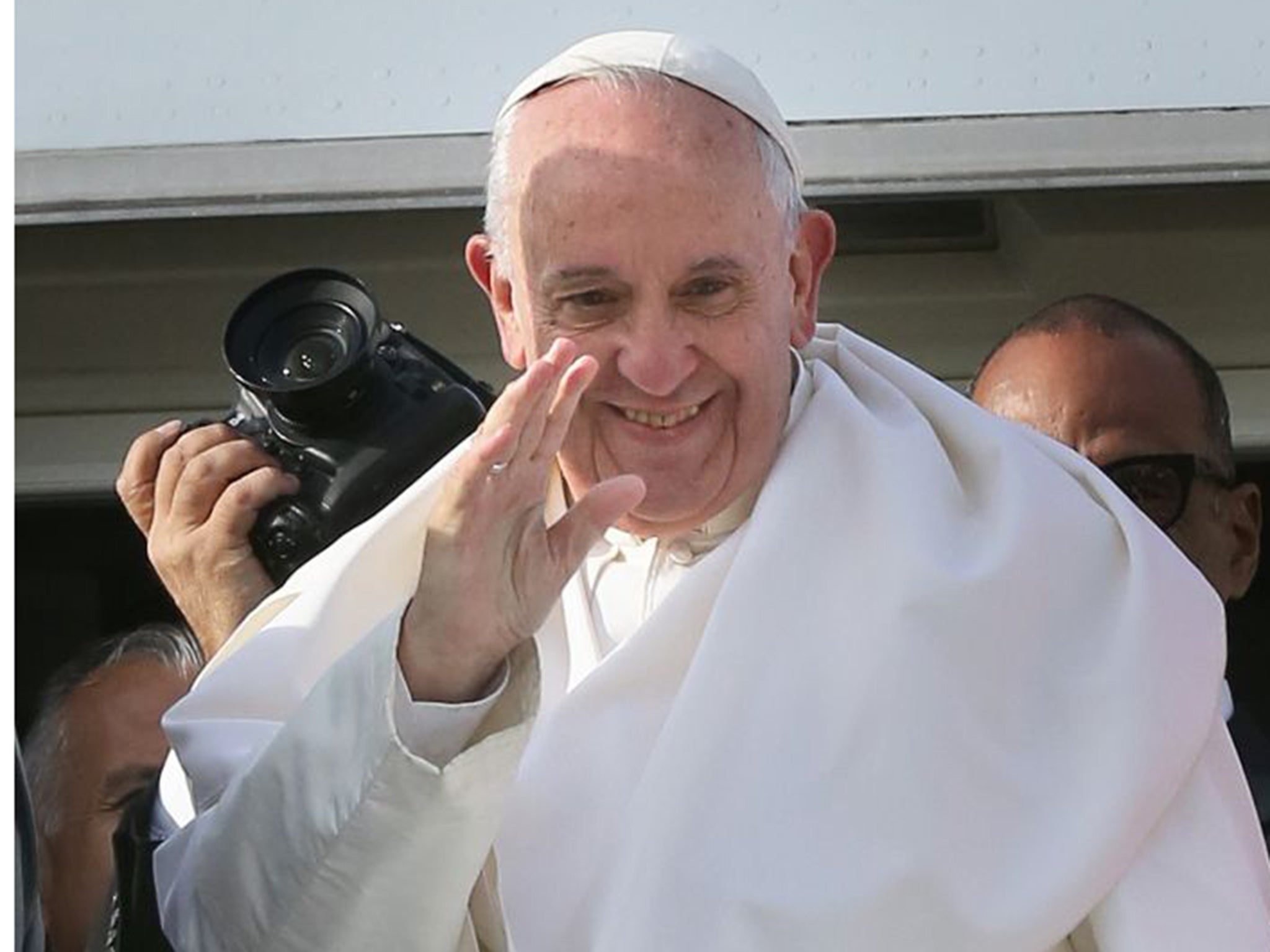Vatican: Catholic bishops meet to draw up recommendations for church’s stance on gay relationships
A Vatican cleric is stripped of his duties for coming out, as Catholic bishops gather to formulate the church’s family policies

“Eagerly anticipated” is not a term often used to describe an international gathering of bishops at the Vatican. But observers are predicting a “rollercoaster ride” when Catholic bishops meet at a synod on the family to draw up recommendations regarding the Church’s stance on the vexed issues of divorce and gay relationships.
In what is being billed as a battle between conservatives and progressives for the heart and soul of the 2,000-year-old institution even Cardinal Lorenzo Baldisseri, the gathering’s secretary general, is predicting a lively debate. “It’s clear that turbulence may appear on some issues,” he said of the three-week conference which begins on 4 October, “but we are in the sea.”
“All at sea,” might be a better description, critics say, as Pope Francis attempts to square the circle by accepting conservatives’ insistence he retain traditional doctrine on the sanctity of marriage while satisfying increasingly vocal demands of modernisers to give communion to divorcees and recognise same-sex couples.
A preliminary meeting last year made global headlines when an early draft document said the Church “should recognise the intrinsic value of loving, same-sex relationships”. Gay equality campaigners rejoiced, but senior conservatives reacted with fury and the final wording was watered down beyond recognition.
The battle continues to rage. On the eve of the meeting, the Vatican announced it had stripped a senior Vatican priest of his “doctrinal responsibilities” after he revealed he was gay. Polish-born Krzysztof Charamsa, 43, said he was “happy and proud” of his identity and wanted to challenge the Church’s “backwards” attitude to homosexuality. The Vatican called his actions “very serious and irresponsible”.

The most senior British participant, Cardinal Vincent Nichols, insists the depiction of a simple battle between social liberals and conservatives is a media invention. “For much of the Catholic world, the impact of poverty, violence and migration on families is a more important issue than the status of gay relationships or divorcees,” he said.
He predicted that pragmatism would prevail on the controversial topics. “It’s about how the principles of the Church should be applied in today’s social situations,” he said. “A divorced person is not a single category.” And he thought there would be a degree of “wriggle room” in the final recommendations.
But given that Pope Francis as the supreme monarch of the Church will decide what to do with the synod’s recommendations – he might issue an encyclical, a directive or call for a Vatican Council – there’s great interest in what we already know about his positions on the hot topics.
The Argentine pontiff was hailed by modernisers last year when he said: “Who am I to judge?” while discussing sexuality. But on returning from his visit to the United States last week he dismissed calls for communion for remarried divorcees and the ordination of women priests.
Gay Catholics are hopeful – to a degree. “The synod will be a rollercoaster. The best we can hope for is the bishops and cardinals adopt a more realistic and inclusive approach to the LGBT community,” said Francis DeBernardo, director of New Ways Ministry, a US Catholic campaign group.
Cardinal Nichols predicts the Pope will issue an exaltation – a teaching document. “I would guess, or I’d hope, that he will call it ‘The Joy of the Family’.” This would ostensibly refer to the traditional family, he said. but with some additional wording to make less-traditional family units feel included, too.
Join our commenting forum
Join thought-provoking conversations, follow other Independent readers and see their replies
Comments
Bookmark popover
Removed from bookmarks